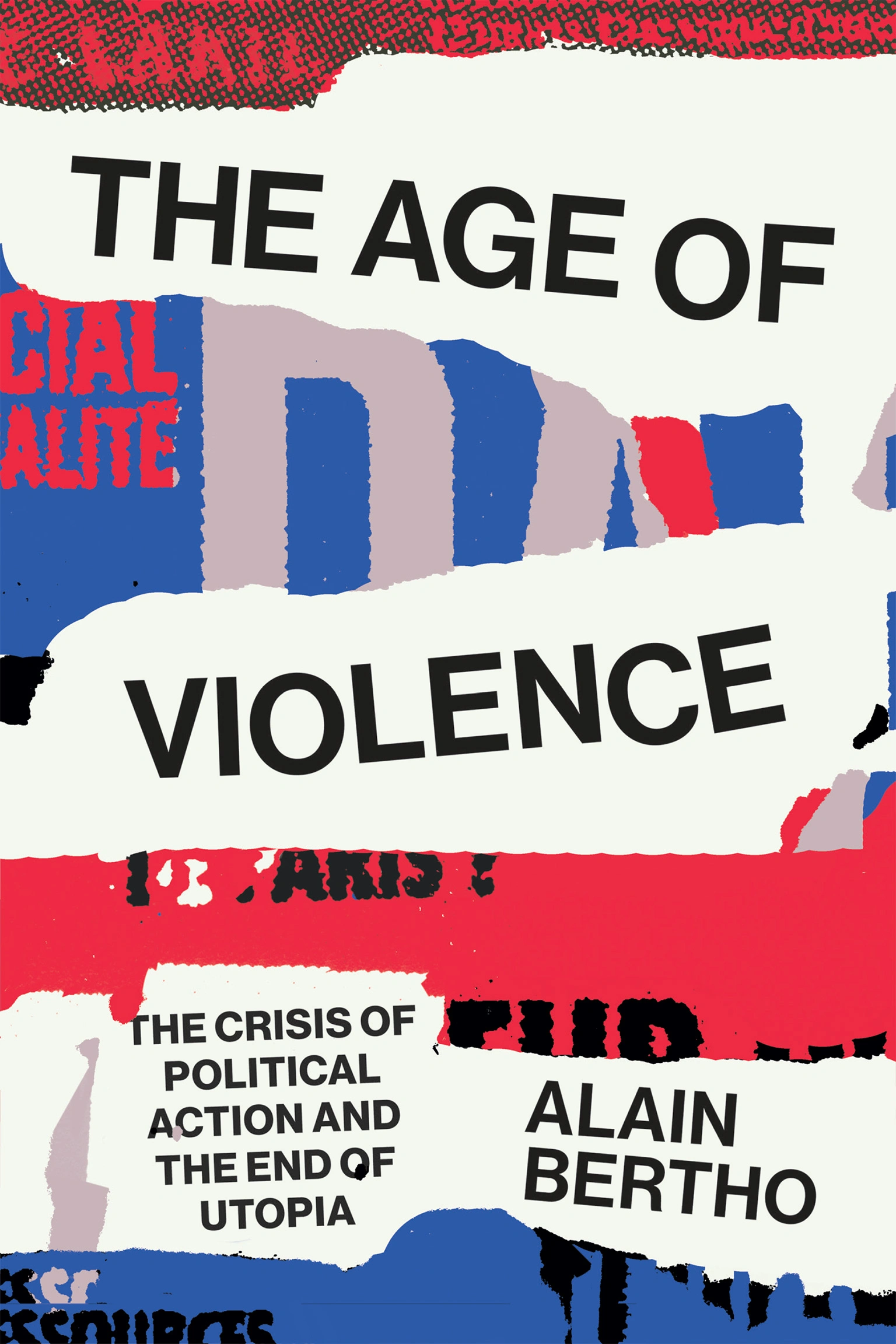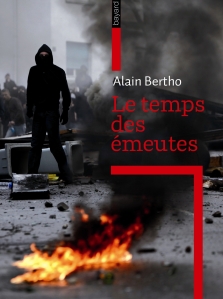Emeutes au Kenya juillet 2008
Le Kenya préoccupé par la révolte des étudiants
28 juillet 2008
Le Kenya vient de traverser une semaine d’émeutes estudiantines, qui ont fait deux morts chez les étudiants. Les revendications pourraient faire sourire – droit d’utiliser le téléphone portable en cours, installation de DVD dans les bus – mais la violence du mouvement préoccupe les autorités. Selon le journal Daily Nation le président Mwai Kibaki a appelé les parents à « prendre leurs responsabilités »

Kenya: Emeutes estudiantines et situation dans les prisons à la une
AFRIQUE EN LIGNE
26 JUILLET 2008
Les émeutes estudiantines qui ont vu des milliers de shillings kényans partir en fumée et la fermeture de douzaines d’écoles dans le pays, ont dominé l’actualité cette semaine au Kenya. La presse s’est également intéressée à « la situation catastrophique » dans les prisons au Kenya, notamment après la publication du rapport du comité ad hoc formé pour enquêter sur le service carcéral et qui préconise d’importants changements dans la gestion des institutions pénales dans le pays.
En effet, une équipe formée pour enquêter sur une grève observée au début de l’année par les gardiens des prisons a découvert un système pénal systématiquement « pourri » et recommande le remplacement de l’ensemble des responsables du département.
L’équipe a trouvé que le système carcéral est en train de « pourrir », « sombrer » sous le poids de la corruption et de la mauvaise gestion.
Les bas salaires, les mauvaises conditions de vie des gardiens et la corruption sont parmi les facteurs clés contribuant à envenimer cette situation.
Mais les Kényans sont également préoccupés par les émeutes estudiantines qui ont vu les élèves du secondaire brûler leurs dortoirs, leurs draps, leurs salles de classe et laboratoires pour aucune raison bien précise. Ces émeutes ont causé la mort de deux étudiants.
D’autres se sont livrés à des actes de violence, en exigeant qu’on les laisse utiliser leurs téléphones mobiles à l’école, que les bus scolaires soient adaptés aux systèmes modernes de la musique, notamment aux DVD, tandis que d’autres réclamaient des « droits conjugaux ».
Dans son éditorial de vendredi, le quotidien Daily Nation demande au gouvernement de réagir rapidement pour mettre un frein à l’inconduite dans l’administration chargée des prisons.
« La balle est maintenant dans le camp du gouvernement qui doit agir sans tarder, et ici la responsabilité en revient carrément au vice-président et ministre des Affaires intérieure, Kalonzo Musyoka » estime le journal.
La menace de troubles dans les prisons ne peut être traitée avec désinvolture, poursuit le quotidien.
« Les agents de ce département sont armés, et ils ont en charge des milliers de prisonniers, dont certains sont des criminels très dangereux » souligne-t-il.
Le ministre de l’Education, le Professeur Sam Ongeri, a, depuis, rappelé les dispositions de la Loi antiémeute en disant que le gouvernement ne laissera pas des hooligans en uniforme d’écolier perturber l’enseignement dans les écoles publiques kényannes.
Et les auteurs de ces violences seront expulsés puis emprisonnés.
Et il ne s’agissait pas de menaces en l’air, car dès jeudi, 12 élèves du lycée Kabarnet Secondary School, dans la Province de la Vallée du Rift, ont été accusés de tentative de meurtre. Ils risquent la prison à vie s’ils sont reconnus coupables.
Le ministre a, depuis, remis des directives aux proviseurs des lycées, portant notamment sur le renforcement de la sécurité dans les écoles et l’interdiction totale des téléphones portables.
Toutefois, cette interdiction était déjà en vigueur, mais les élèves voulaient la faire lever pour leur permettre de communiquer avec leurs « amis » à volonté.
Le gouvernement, perturbé par ce qui constitue essentiellement une agitation lycéenne, a également interdit l’achat de bus scolaire de luxe qui sont adaptés aux systèmes audio modernes.
Cependant la principale raison de ces émeutes semble être les examens blancs, qui servent à évaluer les candidats préparant l’équivalent du baccalauréat au Kenya, Kenya Certificate of Secondary Education Examination (KCSE).
Certains élèves manifestement nerveux, veulent que les matières obligatoires deviennent optionnelles. Les émeutes ont également déclenché un virulent débat sur l’opportunité ou non de réintroduire les châtiments corporels (le fouet) dans les lycées.
Les parents ont en pris pour leur grade, car certains, trop occupés à s’efforcer de gagner leur vie, ont littéralement abandonné leurs progénitures dans les lycées, laissant le fardeau de leur éducation à des enseignant surchargés.
« Fermons toutes les écoles pour endiguer cette vague d’agitation » préconise the Standard.
« Avec la mort d’un deuxième élève, l’arrestation de douzaines d’autres et 60 autres institutions qui menacent d’entrer dans la danse, il est temps de fermer toutes les écoles comme l’a suggéré l’association des enseignants ».
Ceci, estime le journal, dissipera la vague d’inquiétude qui s’est emparée des institutions éducatives du pays. Le journal juge que la situation dans les écoles est un « baril de poudre qui n’attend qu’une étincelle ».
Dans les pages sports, la préparation aux Jeux Olympiques de Beijing, en Chine, pour la délégation kényane domine. Les journaux se sont particulièrement intéressés aux athlètes de classe internationale, parmi lesquels, Janeth Jepkosgei, la nouvelle venue, Pamela Jelimo, Wilfried Bungei, et beaucoup d’autres.
Nairobi Nairobi – 26/07/2008
Kenya students charged over riots
22 juillet 2008
At least 70 Kenyan students have been charged over unrest at boarding schools across the country.
A student died in Nairobi after students set a dormitory ablaze during protests against the school administration over the weekend.
Education Minister Sam Ongeri has warned that the full force of the law will be used against students who incite their colleagues.
Reports say some 200 students have been arrested following the unrest.
The education minister has set up a committee to probe the causes of the strikes, in which property worth millions was destroyed.
Poor food
Meanwhile, politicians, parents and teachers incensed by the ongoing unrest are now calling for the reinstatement of canning as a form of discipline in schools.
« With school property being destroyed and even lives being lost the government must now act tough on discipline in schools, » Tourism Minister Najib Balala said in reaction to the strikes.
Corporal punishment was banned in all learning institutions in Kenya, seven years ago.
However, protesting students complain of poor quality food and harsh rules that impede their freedom while at the boarding schools.
Overcrowding
But some teachers blamed the ongoing unrest on tension among the students who were preparing to start mock examinations this week.
Students from Mbugiti secondary school in central Kenya were arraigned in court and charged with arson and malicious damage to property.
They were released on bail pending hearing of the case.
Mr Ongeri is to issue a statement in parliament on the crisis that has forced about 200 schools to be closed within the last three months.
Kenya introduced a free secondary schooling education programme with a target of raising student enrolment to 1.4 million by the end of the year. President Mwai Kibaki said the government would pay tuition fees for students, while parents would meet boarding costs and buy uniforms.
This was a key pledge in his campaign for last year’s election but slow transfer of the funds has threatened to cripple operations in some institutions The government has released about $41m to pay for the first phase of the programme.
In 2002, many primary schools were overstretched by unexpected high enrolment of students following the introduction of universal free primary education. The ministry of education now plans to introduce day wings in some boarding schools and double shifts in some urban schools to cope with the pressure
Maybe we should listen before we pass the buck
25 Juillet 2008
IT IS THAT SEASON AGAIN WHEN we get to play our favourite game. And, no, it is not football. We do not do too well at that particular game. You need a sensible strategy to play football and win. You must plot and plan your moves if you are to put the ball into the net. You pre-empt threats and head off the danger. You need to see beyond your nose to get the winning score. The team needs to pull together in one direction if it is to emerge at the top of the table. Every member of the team needs to be at peak performance if you are to get a meaningful result. You cannot throw crumbs at the foot-soldiers and give the captain a feast worthy of a king. Not if you want to take the trophy home. And, most of all, you play by the rules – or get the red card, upon which you must march off the pitch even if you are Didier Drogba. Football demands all-round discipline. So now that students all over the country have started little fires and had their say via riots, we can fall back on our national pastime. Let us pass the buck. Everything and everyone else is to blame, never us. We have scored some successes. There are many other things we have failed at. But it is often difficult to draw the line between one and the other. Evil and good co-exist happily in us: multiparty democracy and political violence, jail and extra-judicial killings, better management of national resources and gross inequality, a love-hate relationship with women and girls, corruption and greater public scrutiny-cum-social backlash. Whatever the dilemma we face at any given time, we have a one-size-fits-all solution: pass the buck. Should push come to shove, employ delaying tactics. Name a commission of enquiry. They have never reported anything new, but they buy time – and, hopefully, they will produce reports that are high-sounding even if they are not practical or realistic. For those inclined to see a half-full glass, the school rebellion presents yet another opportunity to redeem ourselves and set this country to rights. What it definitely does not do is give us the authority to thump our chests and attempt to put back the clock when it comes to matters of discipline and social conduct. The authoritarian father is out of commission. In the cacophony over the school riots, many opinions have emerged. Some want the cane brought back to school, seemingly unaware of the contradiction in beating one set of youth and then taking the moral high ground over amnesty for those who beat others. Some want errant students sent home for a year and others want them thrown out for good – even though every child has the right to an education.
SOME BLAME SATAN’S INFLUENCE, which is spread through mobile phones, television, “luxury” school buses (do they have piped music, like the ones prisoners once had?), deodorants, stylish suitcases as opposed to metal ones and – Lord have mercy! – even permed hair. I grew up in a suburb where children were routinely beaten for sins ranging from eating at the neighbour’s house to returning home covered in dust from head to toe. Nightfall was something to dread, not because of insecurity but for very emotional reasons. It was the time children would be wailing all over the compound. They were paying for sins committed during the day. Knowing what awaited them, the children postponed going home until hunger and darkness proved more frightening than the stick. The households with the greatest caning dramas somehow ended up with the most hardcore offenders, many of whom landed in approved school – from where they graduated into criminals who spent more time in jail than out. I have no idea whether Spartan living is the magic ingredient when it comes to passing examinations and going on to become a chief executive, but I know there is a problem when a parent is woken up in the dead of night because his son has been found with a roll-on deodorant. It becomes even more ridiculous when his presence is demanded the next morning, meaning that he has to travel nearly 400 kilometres to explain how it came to be in his son’s possession – and he does not have a private jet on standby for just such occasions. I also know people who have seen their children only in passing since first term, the schools having decreed that they must read up to their eyeballs for national examinations. Let’s pass the buck, please, especially in these days when every school must be in the Top 100 and every parent wants bragging rights when the results are out. Some have even suggested that learning has become an exercise in punishment and that we might want to look inwards if those children are not to turn around and push us to the extremes. We have got away with passing the buck plenty of times, but there comes a time when the adults of Kenya must stand up and be counted. The good conduct that we want of our children must be evident in our own lives. For decades, we cheated, looted, killed and even rewarded criminals with high positions. Why on earth did we imagine that our offspring were deaf and blind to our activities? The Kenya National Union of Teachers is right. Maybe we should listen to the children before we jump to conclusions.
Why our schools are burning
Publication Date: 7/27/2008
Although Kenyans are outraged by the destruction of school property, some students argue that going on strike is the only way they can express their grievances.
A Form Four student at Nairobi’s Jamhuri High School told the Sunday Nation in a survey that it is only through riots that teachers will listen to what they have to say.
“We have tried many times to talk to them, but they do not listen,” he said. “If you want to convey a particular message, it has to pass through prefects, most of whom are teachers’ puppets and will not communicate the message in its original form.”
He says there is very little verbal communication between teachers and students. “If anything, you talk to them only when answering a question in class or when giving an explanation as to why you are late,” he said.
Instil discipline
Dr Okwatch Abbagi, a researcher and policy analyst on education issues, says that although the communication breakdown has played a role in the deteriorating discipline in schools, it is not the only cause.
“Communication may be inadequate, but most teachers nowadays are just a little older than their students,” he said.
“A number of them (teachers) lack the ability to instil discipline in the students since they themselves were brought up without such discipline.”
The Jamhuri student blames school riots on mock exams which, he says, are deliberately made too difficult. This, he says, makes students feel inadequately prepared and to lose hope before the main exam. He suggests the exams be scrapped.
A former student at Jamhuri, Mr Duncan Odhiambo, says that if the schools do not address the discipline problem, the situation can only worsen, arguing that many more students will consider violence the only way of making their grievances known.
“With time, it will be bigger and even Form Ones might become violent because of being bullied by older students,” he added.
A student at Pumwani High School said there are many other problems. The student, who asked not to be identified, said he and his colleagues have carried pent-up rage against the administration’s policies for a long time.
“They are too strict and offer very harsh punishment,” he said. “For instance, if you complain about something, you can easily get suspended. He added that the diet is monotonous and the dormitories too congested, making conditions unsafe and unhygienic.
Better diets
Students at schools recently hit by riots have made demands ranging from better food to the provision of entertainment on school buses.
But Dr Abbagi says the demand culture is to be expected, arguing that the society at large behaves in a similar manner. He cites the ugly confrontations between city council askaris and hawkers and between traffic policemen and matatu crews.
Drug abuse, low self-esteem, poor upbringing and fear of examinations are also to blame.
In the more than 50 schools where students have gone on the rampage in central Kenya, there have been reports of drug abuse and fear of examinations.
The principal of Temple Road Day Secondary School in Nyeri South District, Mr James Mwangi, whose students went on strike allegedly in solidarity with colleagues in the region, said early investigations show that the students may have been smuggling drugs into the school.
The rioters smashed window panes and broke furniture before the institution was closed. “Most students have become peddlers at home since they come from poor backgrounds and assist parents in selling the drugs,” the teacher said.
Last year, two students were caught with bhang at school and were handed over to police.
Fifteen students at his school also chose not to sit the mock examination, saying that the test was too hard.
The crisis
Mr Mwangi said the crisis needs to be addressed through dialogue among students, parents and teachers. “Communication has been there in our schools, but there is the feeling that it needs to be reinforced,” he added.
Teachers and parents should also set a good example for students by being more active in the affairs of their schools and being more responsive to the students’ needs, he said, citing instances in which parents drop students at school, pay the fees and then disappear, only to turn up three months later to pick them up for holidays.
Students in Nyanza Province gave various reasons for the mayhem that hit sections of the area. The students cited what they term high-handedness on the administration’s part, poor diet and not being allowed to participate in sports.
And, like many other students, they said lack of preparedness for the mock examinations made them go on the rampage.
On Saturday, an organisation rebutted a claim that most of the indisciplined students are from single-parent homes.
The Single Ladies Ministries chairperson and founder, Mrs Elizabeth Wahome, said most single mothers are committed to disciplining their children, proving that single parenthood is no obstacle to raising children.
Riots mirror lawlessness in society
Business daily
Written by Laila Macharia
July 23, 2008: Another spate of student riots, this time more rampant and gruesome than ever, has the country baffled. Rather than asking where this is coming from, a better question is why we would expect any different. The unfolding events bear an uncanny resemblance to our national politics in recent months.
Intoxicated by the mob, youths go on a rampage, stealing, burning and raping under the cloak of darkness. When confronted, they justify their acts claiming to be ‘provoked’ by issues, ranging from poorly cooked food to mock examinations that are ‘too hard.’ One unusually creative excuse is that they are protesting a dearth of avenues for expression of grievance, as if demonstrating peacefully or approaching the media is more difficult than destruction.
So they abuse their victims and disrupt the school year for the vast majority. Then, perhaps after a head teacher is transferred and ‘ringleaders’ receive a slap on the wrist, life goes back to normal. More interesting, however, is the reaction of the rest of us. Failing to recognise ourselves in the mirror, we act shocked and puzzled. And make excuses. One public official makes a vague reference to drug abuse while another sheepishly attributes everything to delayed school reforms. We point fingers at everyone except the perpetrators themselves, and allow common, if underage, criminals to slip under the radar.
As a society we coddle the wrongdoer, in effect rewarding him with attention and redress, while we brush aside the wronged and the pain she must endure for months, even decades. There is nothing baffling about the riots; they are only the fruits of a society that derides the law. We can invest in studies, counselling and all manner of other diversions, but to see a true change in the entrenched culture of student riots, two things must happen. One, more short-term, is to bring rioters to account. Secondary school is an ideal age to show that Kenya is a no-nonsense society where the penalty for harming others and their property is consistently swift and severe.
Administrators must emphasize individual responsibility and refuse to tolerate rioters hiding behind a faceless mob. If a good number of teenagers find themselves in multi-year correctional facilities this year, we will likely see a more dramatic reduction in riots next year. The second remedy is to create a society where the rule of law prevails. Youth should see their role models channel their anger constructively and within the binds of the law, regardless of rank.
|
|











